In the colorful tapestry of Pakistan’s diverse culture, the threads of language weave a story that stretches across centuries. It’s a story told in the rhythmic cadence of Sindhi, the lyrical melodies of Punjabi, and the myriad of other indigenous languages that echo the traditions of our people.
In the hustle of modern life, these linguistic treasures face a silent threat—the risk of fading into obscurity. As globalization pushes us towards a more interconnected world, our indigenous languages, rich in history and cultural nuances, find themselves at a crossroads.
Balochi, Punjabi, Pashto, and Sindhi, like guardians of our heritage, carry the weight of generations. Every word they speak holds stories, traditions, and wisdom from the people who came before us. Yet, in the face of rapid urbanization and the allure of global languages, these linguistic legacies are confronted by challenges that demand our attention. The younger generation, caught in the flux of progress, often sees these cultural languages as old-fashioned. Economic opportunities and global connectivity lead them towards languages perceived as gateways to success, unintentionally distancing them from their cultural roots.
The tangible advantages, both economic and social, of safeguarding our cultural languages are unmistakable.
However, all is not lost. The call-to-action echoes through the corridors of education, community, and policy. Collaborative efforts can pave the way for the integration of these languages into mainstream education, ensuring that the younger generation learns not only the languages but also the stories embedded within them.
Preservation initiatives become the guardians of our linguistic heritage. Language-focused programs, literature promotion, and digital resources offer a lifeline, bridging the gap between tradition and the demands of the modern world.
The media emerges as a powerful ally in this endeavor. The creation of content in Punjabi, Sindhi, and other indigenous languages provides a platform for cultural expression. It not only preserves our linguistic diversity but also introduces these languages to a broader audience, fostering a sense of pride among their speakers. In the digital age, where information flows ceaselessly, leveraging various media formats, such as online platforms, podcasts, and social media campaigns, can exponentially amplify the reach and impact of this linguistic celebration. By seamlessly integrating these languages into contemporary media, we not only honor our roots but also ensure that the echoes of our linguistic heritage resonate across borders, transcending geographical boundaries and fostering a global appreciation for the rich cultural tapestry that is uniquely Pakistani.
The moment has arrived to revel in Pakistan’s linguistic diversity, ensuring that every strand in the fabric of our languages retains its vibrancy and vitality.
The economic and social benefits of preserving our cultural languages are evident. Bilingualism enhances cognitive abilities, providing a competitive edge in the global arena. Therefore, the preservation of Sindhi, Punjabi, and others is not just a cultural endeavor; it’s an investment in a more enriched and diverse society. Beyond bolstering cognitive skills, multilingualism fosters open-mindedness and intercultural understanding, essential qualities in today’s interconnected world. Embracing linguistic diversity contributes not only to individual growth but also to the broader social tapestry, creating a harmonious and adaptable society that thrives on the richness of its linguistic heritage.
In conclusion, the urgency to protect our cultural languages, with Sindhi and Punjabi at the forefront, is a call to unite. These languages are not mere words; they are the heartbeat of our cultural identity. Their preservation is not just a choice; it’s a responsibility to ensure that the voices of our ancestors continue to resonate in the hearts and minds of generations to come. It’s time to celebrate the linguistic mosaic that is Pakistan, ensuring that each thread in the tapestry of our languages remains vibrant and alive. As we embark on this collective endeavor, let us recognize that safeguarding our linguistic heritage is an investment in a future where the echoes of diversity harmonize to create a more enriched society.





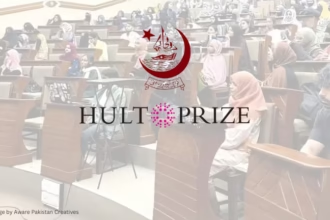
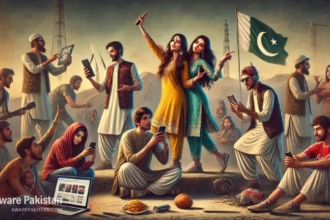
Simple, but a great read. Apart from political and economic affairs, there is a dire need to address these issues timely, and through a channelised way. It’s great to see you writing about a radical albeit “silent” issue. Looking forward to reading more of your content.